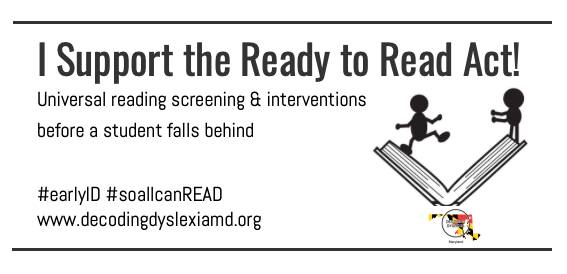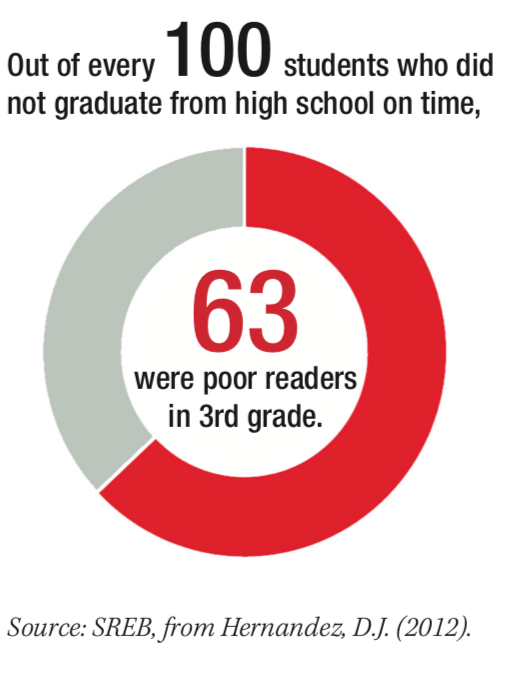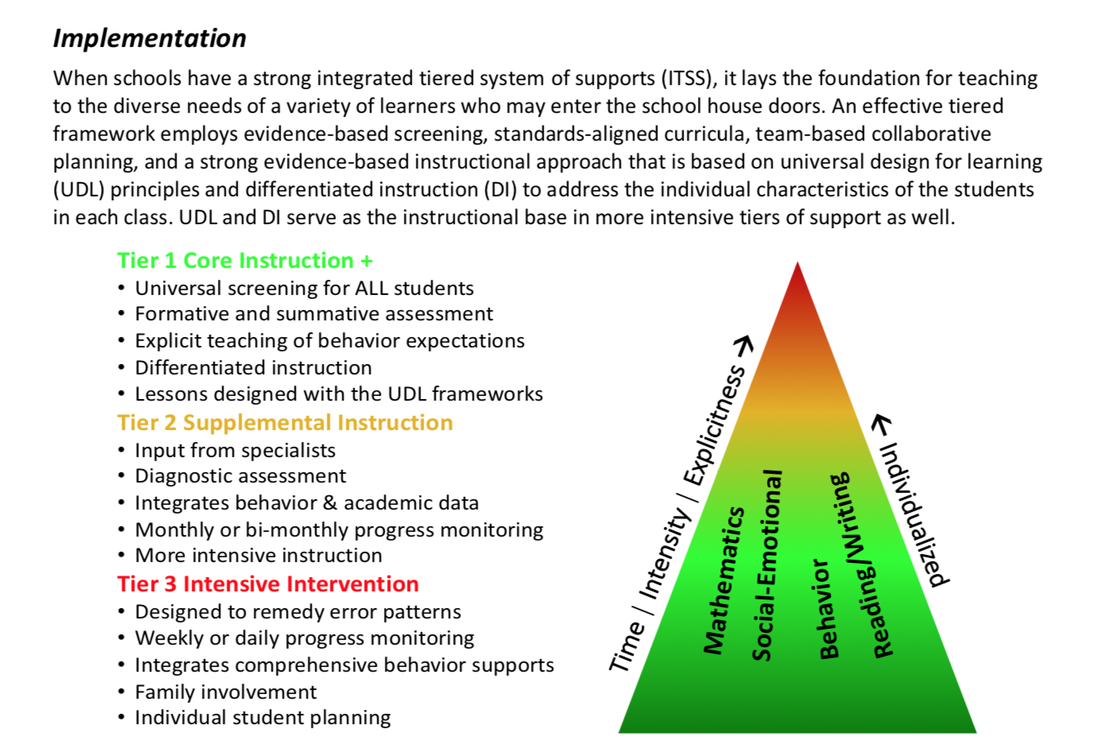“We want to move from a deficit-model to a preventive model.”
Dr. Nadine Gaab, Boston Children’s Hospital, Laboratories of Cognitive Neuroscience
| Delegate Eric Luedtke (D-Montgomery) and Senator Craig Zucker (D-Montgomery) are set to introduce the Ready to Read Act of 2019 to the Maryland General Assembly in the next few weeks. The bill will prevent reading difficulties in young children by screening students in PK, K and Grade 1 using predictive, short measures that tell an educator if the child is at risk for reading problems. Why is this important? Because students who fall behind in reading have a difficult time catching up to their peers. One question that is often asked about reading screening is "will it diagnose young children with a disability like dyslexia?" Here's a response to that question along with an excellent analogy when thinking about screening and the benefits for young children. | Diagnosing Vs Screening: What is the difference? From Spell Talk listserve, 1.16.2018 An interesting question was posed recently on a listserve with members who work in classrooms and universities across the country. The question, paraphrased was, "will screening kids for reading difficulties mean they are now diagnosed with dyslexia or a disability?" Dr. Nadine Gaab responded to this question with an excellent medical model for prevention saying: "The general idea here is not to diagnose children in preschool but to identify children at-risk to develop reading impairments (not just dyslexia). I often use an analogy from medicine for the argument: We are screening people for high cholesterol, which would be an increased risk to develop heart disease. We are not trying to diagnose people who present with high cholesterol with heart disease. If someone has high cholesterol and therefore is at-risk to develop heart disease we then provide ‘evidence-based response to screening’ which, in this case, would be prescribed exercise, dietary changes, maybe medication. The goal here is to prevent heart disease and not to diagnose earlier. It is hoped that fewer people then end up with a diagnosis of heart disease or if they do, it will be less severe since they already changed their diet, started exercising, take medications, etc. We want to move from a deficit-model to a preventive model. It's the same with reading impairments. We want to identify preschoolers at-risk but not diagnose them with a reading disability like dyslexia in preschool. Then you put great ‘evidence-based response to screening’ in place so that their risk to develop dyslexia decreases OR if they develop reading problems, it may be less severe since they already had remediation/intervention since preschool.” Maryland's Kirwan Commission is planning to include reading screening in the recommendations because it's part of the prevention and intervention framework. The research behind predictive reading screening shows that screening serves the needs of students who may come to the classroom without the requisite knowledge to hit the ground running. If we can figure out what's going to happen before it happens, we can prevent the negative outcomes associated with reading struggles and low literacy. #soALLcanRead #ReadytoREAD |




 RSS Feed
RSS Feed